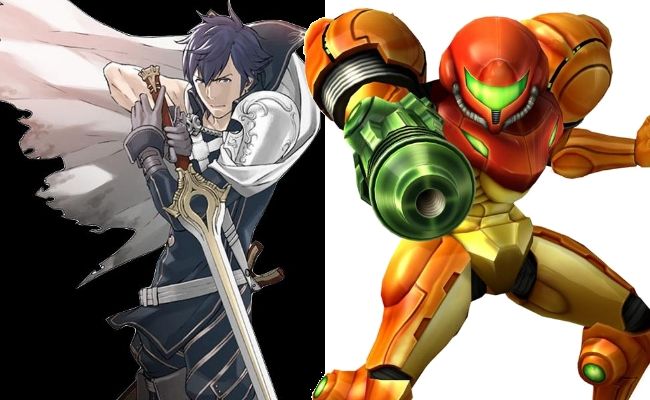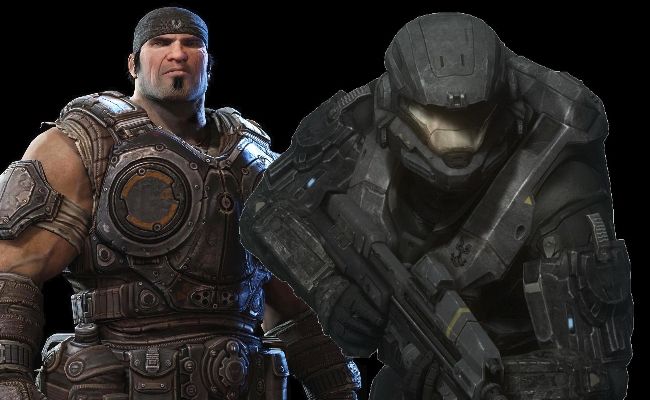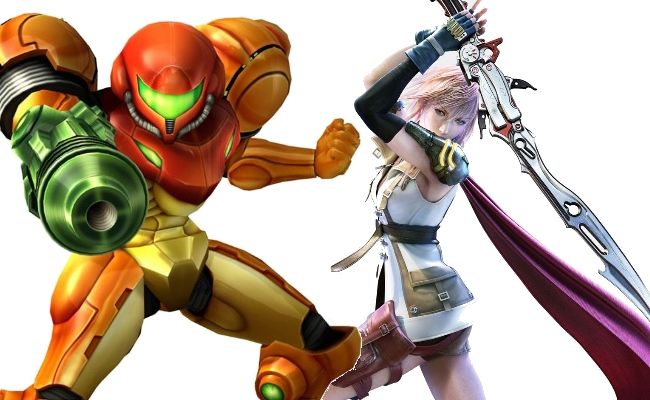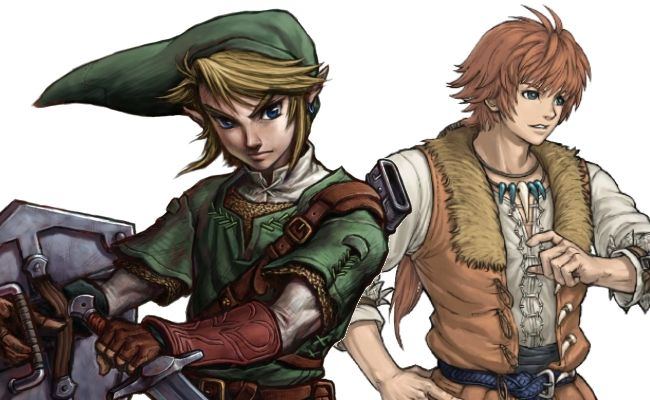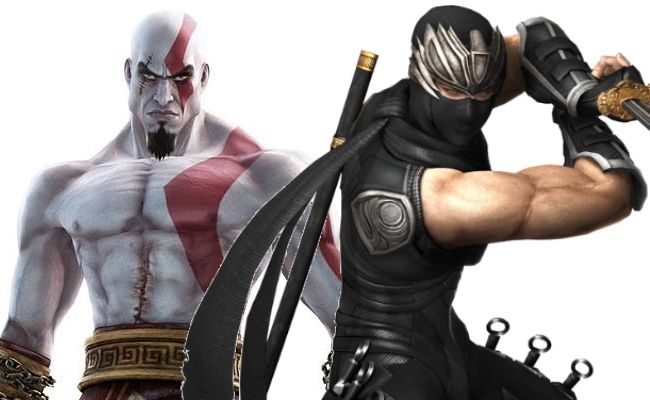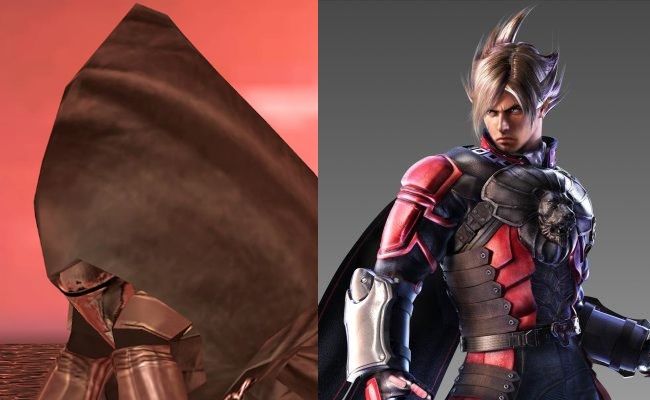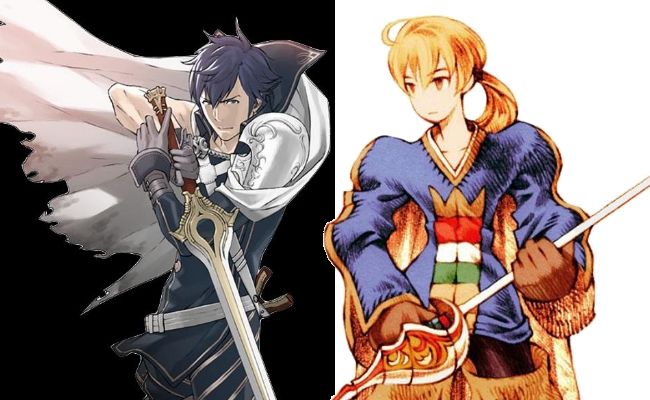Before I start my tirade, I want to clear this up. This piece is not me looking down on the chosen subject matter of video game writers. I would never try to dictate how and what stories you should write because I know that most stories are written with passion and an intense desire for expression. However, when character backstories and archetypes are written as a matter of convenience (basically to get a character from frame of mind, setting or situation A to B) then maybe it's time to go back to the drawing board. I believe that, as a writer, one should be able to critically analyze their characters in order to improve.
Now wait, you say, what does this have to do with video games? Well, honestly--everything. Video game characters (especially protagonists) can sometimes end up recycling the same storyline, drawn from the same tepid pool of cliches and stereotypes. We're all familiar with the archetypes--and to be honest they can be written well or very, very poorly. So if we want everyone to take our beloved pasttime seriously, we need to start applying the same standards that other forms of media deals with.
The Gruff (Space) Marine Who Becomes a Legend- this archetype is like the "all-American video game character." He is always pithy, Caucasian and gruff, with a machine gun in one hand and a cigar in the other. And no matter how mean, unhinged, damaged or reckless they are, they will always be right and always be the great hero in the end. While it's fun to sometimes indulge in these kinds of fantasies where you can kickass and generally be awesome, seeing almost every shooter use this kinda puts a damper on the fantasy.
- The Good- Noble Six (Halo: Reach)- I found myself very surprised when playing this game and yes, I do realize that you create the character. However, the actions of this space marine through his/her journey is completely the opposite of the normal archetype. They are honest, new to the team (and therefore less experienced in that team environment), actually converses and works with the other teammates (instead of yelling cool comments and running ahead) and even dies.
- The Bad: Marcus Fenix (Gears of War series)- honestly, as I was typing out the archetype's description, Marcus was flashing constantly before my eyes. He completely encompasses every stereotype listed, with very little development. Even the whole story with his father felt artificial and weak.
Tough Strong Woman Who Doesn't Play By the Rules- I can see everyone looking at my name, then at the archetype, and then collectively groaning. Look, I absolutely love the idea of strong female characters gracing a video game--I'm pretty sure everyone does, right? But there's a difference between a woman who's courageous and a giant jerk that makes you wonder why no one has plastered her brains against a wall yet. When her "toughness" is far too exaggerated, (like the gruff space marine) it can become ridiculous and impossible to take seriously.
- The Good: Samus (Metroid series)- what makes her so well written is that she actually has properly defined reasons for being strong, insanely self-disciplined and a loner. And yet Samus has a softer side that doesn't detract from her asskicking.
- The Bad: Lightning (Final Fantasy XIII)- now unlike many of you, I actually did like FFXIII. But Lightning is an amazing example of a strong female type that is rude, temperamental, nearly suicidal and constantly putting her companions in danger (including a little boy) with no justification, just because the writers wanted to make her "tough" and "no-nonsense."
Commoner Who is Last Royal/Magical Scion of a Hero/Legend- this backstory is pretty obvious since it plays on the fantasy of those of us who wish we could just wake up and magically be something special--you know, until the snooze alarm turns on and we have to crawl out of bed and into whatever godforsaken job we have. The point is, this backstory can often be used as a crutch for suddenly making the main character awesome without the character having to put in the training and hardwork first.
- The Good: Link (Legend of Zelda series)- In most LOZ games, Link is a commoner who is actually the descendant of the great hero of time. And he's always forced to set out on a journey because of his bloodline. But unlike other similar types, Link's newly found lineage doesn't make anything easier--he still has to work hard, struggle and forge alliances on his own merit, which makes saving the day much more satisfying.
- The Bad: Leonard (White Knight Chronicles I and II)- Basically Leonard receives a magic bangle that turns him into a giant mecha called the White Knight, which is awesome until he opens his mouth. He never has to work hard to receive it, he doesn't struggle to use it and from the moment Leonard gets it you pretty much curb stomp every enemy he fights in this suit. The second game tries to remedy this but it still feels way too easy.
Man Out For Revenge- writers often rely on tragic backstories to make you instantly feel sorry for the main character, because what could be more heartbreaking than a man who looses everything and is forced to continue on? The overuse of this trope, that's what. Because the main problem here is that if it's a family death, you usually only get to see the protagonist but never the wife or children--they're just treated like plot devices and not the human beings they were suppose to be in the game. And if it's a home village, then it's the flatness of the dead family shpeal but on a more massive scale.
- The Good: Kratos (God of War series)- While I admit I think Kratos is very overrated, he still has a fascinating and unique relationship with vengeance. Not only is he out for blood for his dead family, but for his brother and for the life and nightmares he's endured thanks to the Greek gods. Kratos is so tangled in the cycle of hatred and revenge that he has no hope of ever escaping, which really shines as a great deconstruction of the whole archetype.
- The Bad: Ryu Hayabusa (Ninja Gaiden series)- Ryu pretty much represents the the laziest iteration of this archetype--instead of it being emotional and moving, the death of his clan and his father (not to mention the kidnapping of his fiance and theft of his sword) is used to quickly get him to kick a lot of ass.
Amnesiac Hero- if there are two things you can learn about amnesia in video games (or in most fiction for that matter) it's that 1) it will almost always be cured and 2) the only ones that get it always remember how to fight and turn into amazing heroes. And it's amazing how often amnesia is used in RPG and adventure games especially. As Yahtzee puts it, "if adventure gaming were a medical condition, the first symptom would be amnesia and the second would be kleptomania." Okay so the second half had nothing to do with the article but it was still funny.
- The Good: Protagonist (Knights of the Old Republic)- what made this nameless and memoryless (shut up it's totally a word) main character so interesting is how they turned this archetype on its head--instead of a hero, the protagonist turns out to be the recently defeated super villain that everyone refers to in the game.
- The Bad: Lars Alexandersson (Tekken 6)- besides the spelling of his last name being horrible, in a completely predictable and boring plot point he suddenly recovers his memories while facing off against his father Heihachi.
Super Wonderful Prince/King/Noble/Warrior- funny enough, this archetype runs in cycles--really popular in older games, then went to the wayside for the more "realistic" dark broody guy, and now is (sorta) making a comeback. Similar to the guy out for revenge mold, games often use the well-off but really nice protagonist as an easy way to make the player love and sympathize with him/her but it usually falls flat when there's no reason for them to behave this way. The worst part is when there are very little consequences for his good-natured but often reckless actions.
- The Good: Ramza (Final Fantasy Tactics)- what makes his archetype so well done is the fact that you actually see his development. He starts out bright-eyed and innocent but soon sees the harsh truths of the world through death and betrayal. And even though nothing but suffering meets his kind actions, Ramza pushes on ahead despite them. As a bonus, his actions don't immediately put his comrades in danger because he always tries to use himself as bait instead to avoid their injury.
- The Bad: Chrom (Fire Emblem Awakening)- I love Awakening and I love Chrom. But he honestly did not get any proper development as to why he's so kind-hearted--and don't say his older sister because that's not good enough. Worse, his overly trusting and brash nature suffers no ill consequences for him or his party members. Basically Chrom teaches you that it's okay to trust psycho Dark Mages, thieves and every former villain wandering around that he didn't kill hard enough.

